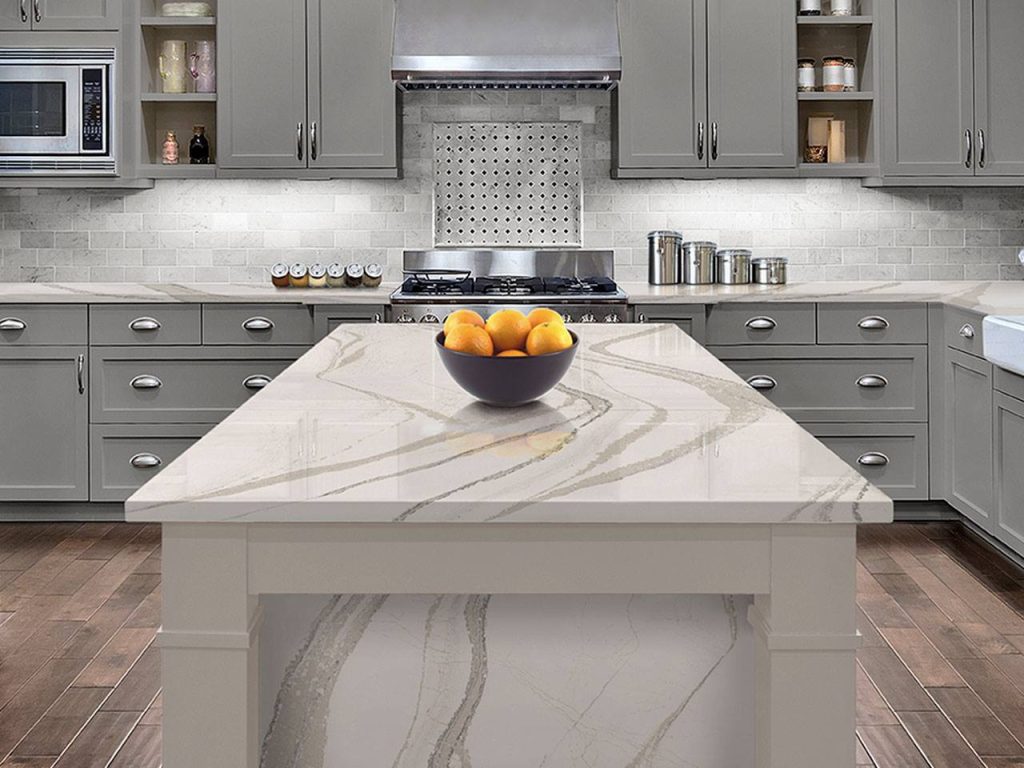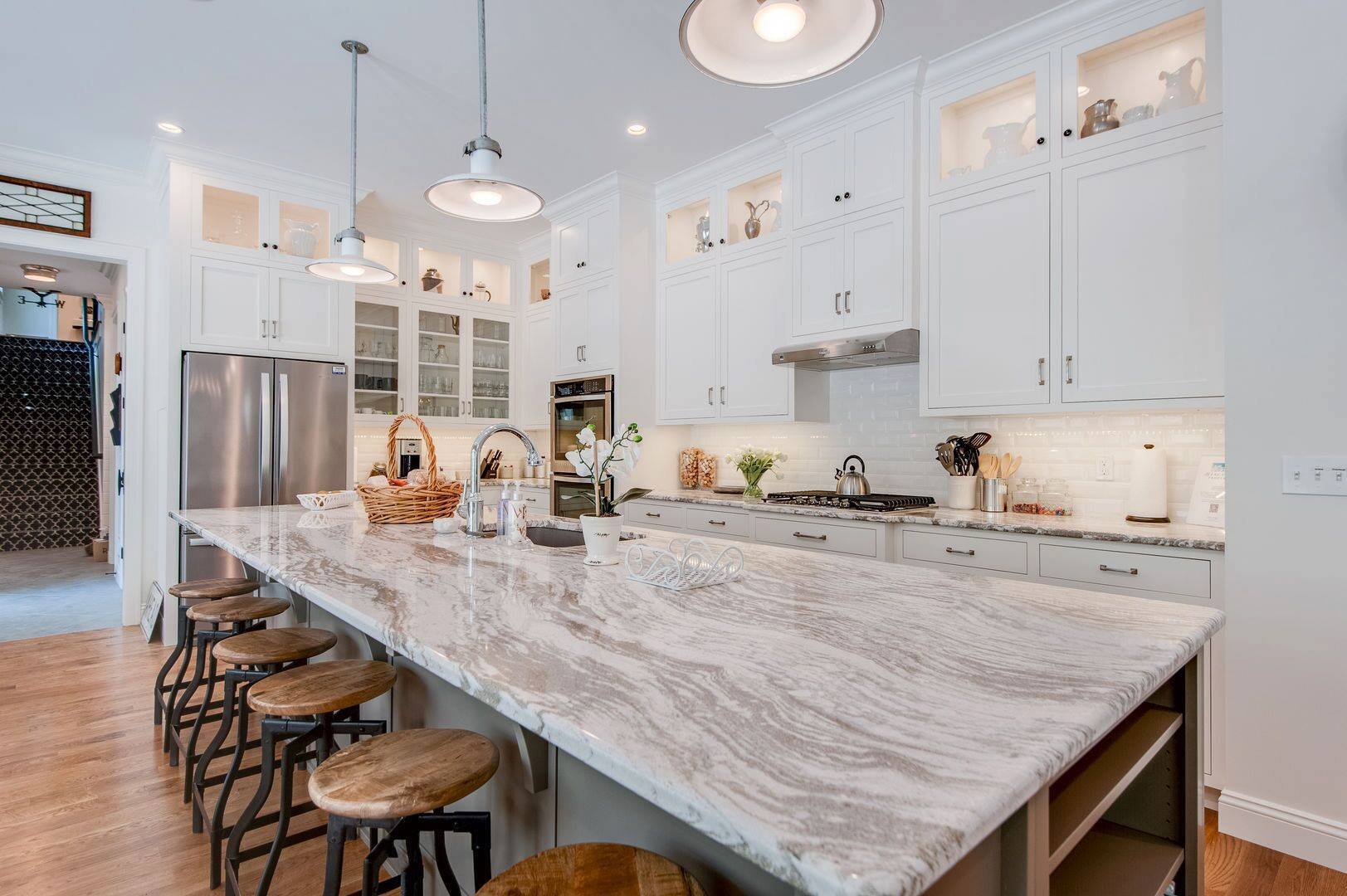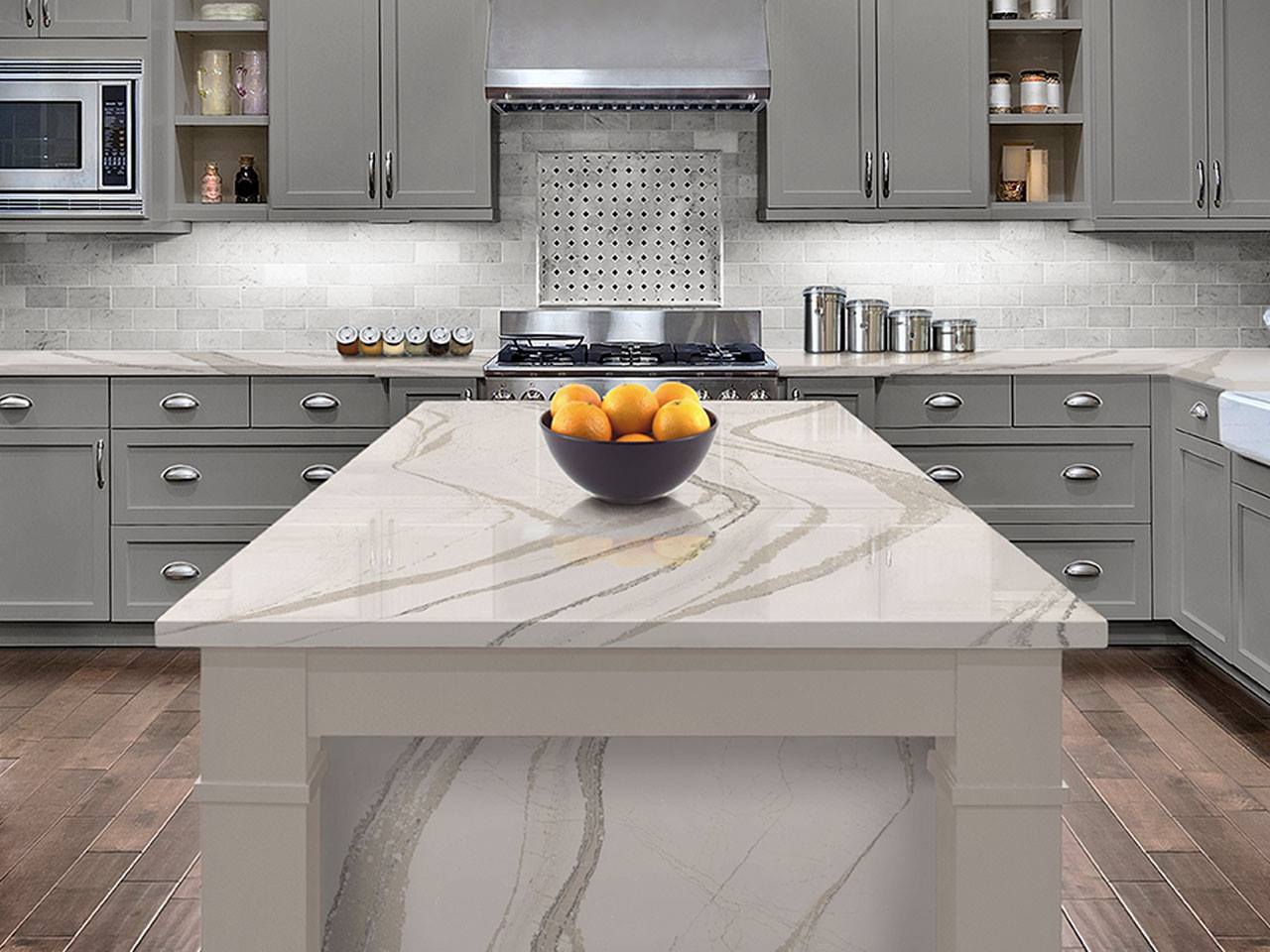When planning a kitchen remodel, few decisions are as important—or as permanent—as choosing your countertop material. Among today’s most popular options, quartz countertops have earned their reputation as a reliable, stylish, and low-maintenance solution. If you’re a homeowner exploring kitchen remodeling ideas and considering quartz, this guide will walk you through everything you need to know before choosing quartz.
What Is Quartz?
Quartz countertops are not mined like natural stone slabs. Instead, they are engineered surfaces composed of approximately 93% crushed quartz crystals blended with resins and pigments. This process produces a non-porous, highly durable surface that mimics the appearance of natural stone while offering superior consistency and ease of care.
Unlike granite countertops or marble countertops, quartz is uniform in pattern and color. That means fewer surprises when your new counters arrive. Top quartz brands—like Caesarstone and Cambria—offer stunning patterns that replicate high-end natural materials with enhanced performance for daily kitchen use.
Benefits of Choosing Quartz Countertops
Here’s why quartz continues to gain popularity among homeowners planning kitchen renovations:
✅ Durability That Lasts: Quartz is one of the hardest materials available for countertops. It’s highly resistant to scratches, chips, and everyday wear—perfect for active kitchens.
✅ Non-Porous and Hygienic: Unlike natural stone, quartz doesn’t absorb spills. It’s stain-resistant and prevents bacterial growth, making it a safe and sanitary option for food prep.
✅ Low Maintenance: Forget about sealing or polishing. A simple wipe with mild soap and water keeps your quartz kitchen countertops looking like new.
✅ Wide Range of Designs: Choose from solid colors, veined patterns, or designs that imitate marble or concrete. Quartz offers unmatched design versatility for traditional or modern kitchens.
✅ Color Consistency: Natural stone can vary from slab to slab. Quartz offers predictable, consistent patterns—ideal for larger kitchens or matching multiple surfaces.
✅ Eco-Friendly Options: Some manufacturers offer sustainable quartz surfaces made from recycled materials, adding green value to your remodel.
Things to Consider Before Choosing Quartz
Quartz may seem like the perfect solution, but it’s important to understand a few potential drawbacks before you commit:
⚠️ Not Fully Heat-Proof :While quartz can handle moderate heat, it’s not heatproof. Always use trivets or hot pads to protect your investment.
⚠️ Visible Seams in Larger Installations :Although professional fabricators (like Blasius Countertops) can minimize them, seams between quartz slabs may be noticeable—especially in light or patterned designs.
⚠️ Costs Can Vary: Quartz countertops pricing falls in the mid to high-end range, depending on brand and design complexity. Be sure to compare quartz vs granite or other surfaces based on your budget and priorities.
⚠️ UV Sensitivity: Quartz is not recommended for outdoor kitchens or spaces exposed to direct sunlight, as it may fade over time.
⚠️ Professional Installation Required: Quartz is heavy and needs expert installation to ensure structural support and a seamless finish. That’s where a trusted partner like Blasius Countertops comes in.
Ideal Use Cases for Quartz
Quartz is an excellent fit for a wide range of applications:
- Busy Family Kitchens – With low maintenance and strong durability, quartz is ideal for households that cook often.
- Modern or Transitional Kitchen Designs – Sleek and customizable looks make quartz perfect for updated kitchen styles.
- Bathrooms and Laundry Rooms – Its non-porous quality makes quartz a smart choice for moisture-prone spaces.
- Commercial Spaces – Offices, showrooms, or retail counters benefit from quartz’s clean look and resilience.
Indoor Use Only – For outdoor kitchens or BBQ areas, consider other materials better suited to sun and weather exposure.
Final Thoughts: Is Quartz Right for Your Remodel?
Quartz countertops offer a compelling blend of durability, style, and practicality—making them a top contender for modern kitchen renovations. From its non-porous surface and low maintenance appeal to its wide design versatility, quartz delivers both form and function. However, understanding its limitations—like heat sensitivity and visible seams—is key to making an informed decision. Whether you’re designing a busy family kitchen or upgrading a sleek commercial space, quartz can be a smart, long-lasting investment. With professional installation and thoughtful planning, your quartz surfaces can elevate both the beauty and performance of your home.




